Frequent persons on Albania's street signs
countries
86 names / 203 streets
Ismail Qemali
 5
Ismail Qemali, sometimes spelled as Ismail Kemal in old diplomatic correspondence, was an Albanian politician and statesman who is regarded as the founder of modern Albania. He served as the first...
5
Ismail Qemali, sometimes spelled as Ismail Kemal in old diplomatic correspondence, was an Albanian politician and statesman who is regarded as the founder of modern Albania. He served as the first...
Gjergj Fishta
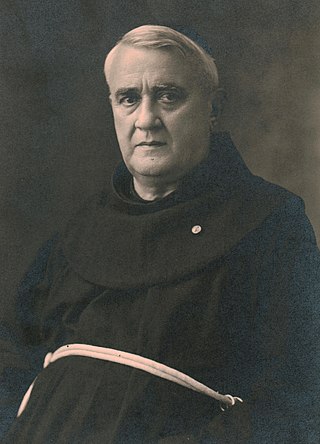 5
Gjergj Fishta was an Albanian Franciscan friar, poet, educator, rilindas, politician, translator and writer. He is regarded as one of the most influential Albanian writers of the 20th century,...
5
Gjergj Fishta was an Albanian Franciscan friar, poet, educator, rilindas, politician, translator and writer. He is regarded as one of the most influential Albanian writers of the 20th century,...
Qemal Stafa
 5
Qemal Stafa was a founding member of the Albanian Communist Party, and the leader of its youth section.
5
Qemal Stafa was a founding member of the Albanian Communist Party, and the leader of its youth section.
Sami Frashëri
 4
Sami bey Frashëri or Şemseddin Sâmi was an Ottoman Albanian writer, philosopher, playwright and a prominent figure of the Rilindja Kombëtare, the National Renaissance movement of Albania, together...
4
Sami bey Frashëri or Şemseddin Sâmi was an Ottoman Albanian writer, philosopher, playwright and a prominent figure of the Rilindja Kombëtare, the National Renaissance movement of Albania, together...
Pjetër Budi
 4
Pjetër Budi, was an Albanian Catholic bishop and a prominent Old Albanian author. He is known for his first work "Doktrina e Kërshtenë", an Albanian translation of the catechism of Robert Bellarmine,...
4
Pjetër Budi, was an Albanian Catholic bishop and a prominent Old Albanian author. He is known for his first work "Doktrina e Kërshtenë", an Albanian translation of the catechism of Robert Bellarmine,...
Andon Zako Çajupi
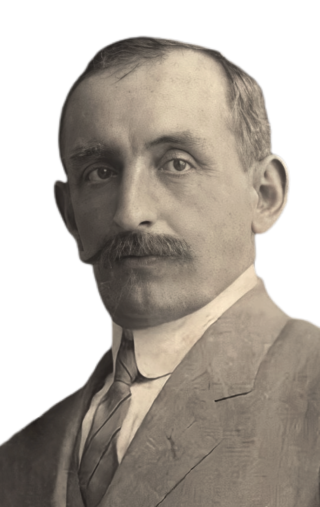 4
Andon Zako Çajupi was an Albanian lawyer, playwright, poet and rilindas.
4
Andon Zako Çajupi was an Albanian lawyer, playwright, poet and rilindas.
Teodor Keko
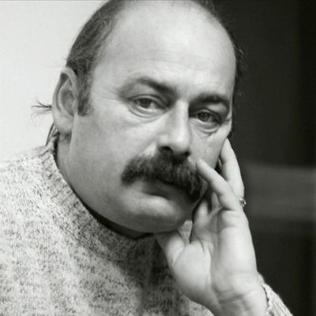 4
Teodor Keko was an Albanian writer, journalist, and politician.
4
Teodor Keko was an Albanian writer, journalist, and politician.
Mihal Grameno
 4
Mihal Grameno was an Albanian nationalist, politician, writer, freedom fighter, and journalist. He was one of the four initial appointed delegates from Korçë to the Albanian National Congress that...
4
Mihal Grameno was an Albanian nationalist, politician, writer, freedom fighter, and journalist. He was one of the four initial appointed delegates from Korçë to the Albanian National Congress that...
Sulejman Delvina
 3
Sulejman Delvina, also known as Sylejman Fehmi, was an Albanian politician, who served as prime minister from 30 January March to 14 November 1920.
3
Sulejman Delvina, also known as Sylejman Fehmi, was an Albanian politician, who served as prime minister from 30 January March to 14 November 1920.
Pope John Paul II
 3
Pope John Paul II was head of the Catholic Church and sovereign of the Vatican City State from 1978 until his death in 2005.
3
Pope John Paul II was head of the Catholic Church and sovereign of the Vatican City State from 1978 until his death in 2005.
Aleksandër Moisiu
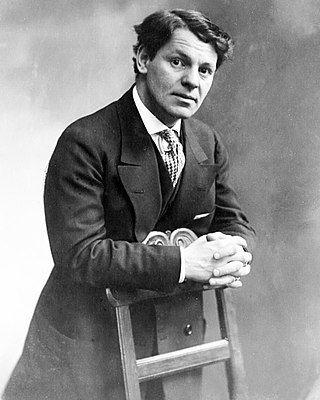 3
Alexander Moissi was an Austrian stage actor of Albanian origin.
3
Alexander Moissi was an Austrian stage actor of Albanian origin.
Giuseppe Valentini (albanologist)
 3
Giuseppe Valentini was an Italian priest and albanologist of the 20th century.
3
Giuseppe Valentini was an Italian priest and albanologist of the 20th century.
Faik Konica
 3
Faik Bey Konica was an important figure in Albanian language and culture in the early decades of the twentieth century. As the Albanian minister to Washington, D.C., his literary review Albania...
3
Faik Bey Konica was an important figure in Albanian language and culture in the early decades of the twentieth century. As the Albanian minister to Washington, D.C., his literary review Albania...
Bajram Curri
 3
Bajram Curri was an Albanian chieftain, politician and activist who struggled for the independence of Albania, later struggling for Kosovo's incorporation into it following the 1913 Treaty of London....
3
Bajram Curri was an Albanian chieftain, politician and activist who struggled for the independence of Albania, later struggling for Kosovo's incorporation into it following the 1913 Treaty of London....
Joan of Arc
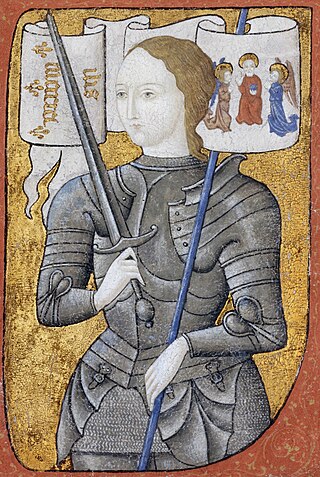 3
Joan of Arc is a patron saint of France, honored as a defender of the French nation for her role in the siege of Orléans and her insistence on the coronation of Charles VII of France during the...
3
Joan of Arc is a patron saint of France, honored as a defender of the French nation for her role in the siege of Orléans and her insistence on the coronation of Charles VII of France during the...
John Bosco
 3
John Melchior Bosco, SDB, popularly known as Don Bosco, was an Italian Catholic priest, educator and writer of the 19th century. While working in Turin, where the population suffered many of the ill...
3
John Melchior Bosco, SDB, popularly known as Don Bosco, was an Italian Catholic priest, educator and writer of the 19th century. While working in Turin, where the population suffered many of the ill...
Girolamo de Rada
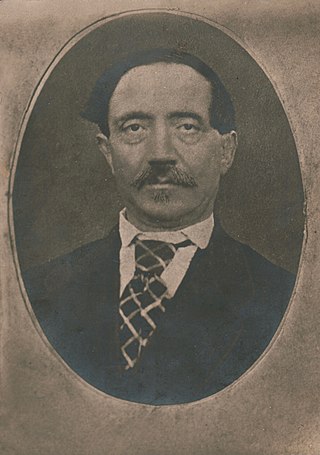 3
Girolamo de Rada was an Arbëreshë folklorist, journalist, lawyer, playwright, poet, rilindas and writer. He is regarded as one of the most influential Albanian writers of the 19th century who played...
3
Girolamo de Rada was an Arbëreshë folklorist, journalist, lawyer, playwright, poet, rilindas and writer. He is regarded as one of the most influential Albanian writers of the 19th century who played...
Gramoz Pashko
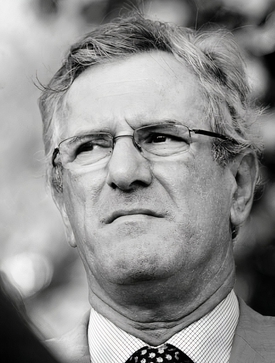 3
Gramoz Pashko was an Albanian economist and politician. He co-founded the Democratic Party of Albania in 1990 and later served as rector of the University of New York, Tirana. Pashko was married to...
3
Gramoz Pashko was an Albanian economist and politician. He co-founded the Democratic Party of Albania in 1990 and later served as rector of the University of New York, Tirana. Pashko was married to...
Ali Demi
 3
Ali Demi was an Albanian hero of World War II and a communist. He was killed in battle fighting German forces in Vlora, Albania in 1943.
3
Ali Demi was an Albanian hero of World War II and a communist. He was killed in battle fighting German forces in Vlora, Albania in 1943.
Shahin Toci
 3
Patrioti i madh shqiptar Shahin Toçi lindi me 15 prill te vitit 1914 në fshatin Urxalle te Matit në një familje te thjeshte, bujare dhe te besës, ku brez pas breza në ketë familje u trashëguan vlera...
3
Patrioti i madh shqiptar Shahin Toçi lindi me 15 prill te vitit 1914 në fshatin Urxalle te Matit në një familje te thjeshte, bujare dhe te besës, ku brez pas breza në ketë familje u trashëguan vlera...
Pjetër Bogdani
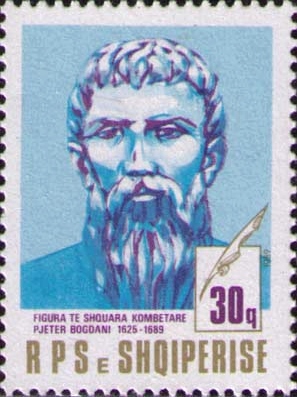 2
(Italian: Pietro Bogdano; 1627 – 6 December 1689) was the most original writer of Old Albanian literature. He was author of the Cuneus Prophetarum, 1685, the first prose work of substance written...
2
(Italian: Pietro Bogdano; 1627 – 6 December 1689) was the most original writer of Old Albanian literature. He was author of the Cuneus Prophetarum, 1685, the first prose work of substance written...
Asim Vokshi
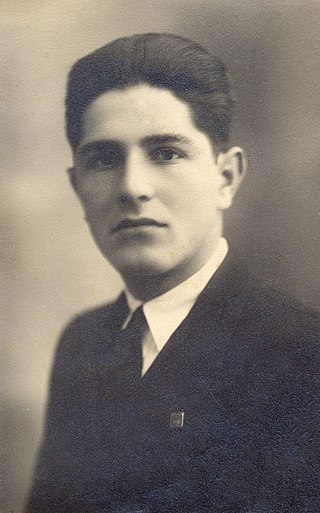 2
Asim Vokshi (1909–1937) was an Albanian Kosovar from Gjakova, Kosovo Vilayet, Ottoman Empire, and studied at a military academy in Italy.
2
Asim Vokshi (1909–1937) was an Albanian Kosovar from Gjakova, Kosovo Vilayet, Ottoman Empire, and studied at a military academy in Italy.
Reshit Çollaku
 2
Reshit Çollaku ka qenë antifashist, veprimtar i LANÇ-it, komendant çete dhe më pas batalioni. I rënë dëshmor, u nderua pas vdekjes Hero i Popullit.
2
Reshit Çollaku ka qenë antifashist, veprimtar i LANÇ-it, komendant çete dhe më pas batalioni. I rënë dëshmor, u nderua pas vdekjes Hero i Popullit.
Fuad Toptani
 2
Fuad Toptani was an Albanian politician and mayor of Tirana from 1925 through 1927.
He was a delegate in the Albanian Congress of Trieste of 1913.
2
Fuad Toptani was an Albanian politician and mayor of Tirana from 1925 through 1927.
He was a delegate in the Albanian Congress of Trieste of 1913.
Ibrahim Rugova
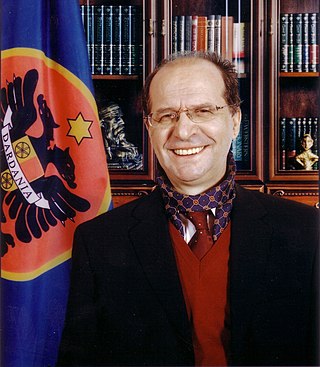 2
Ibrahim Rugova was a Kosovo-Albanian politician, scholar, and writer, who served as the President of the partially recognised Republic of Kosova, serving from 1992 to 2000 and as President of Kosovo...
2
Ibrahim Rugova was a Kosovo-Albanian politician, scholar, and writer, who served as the President of the partially recognised Republic of Kosova, serving from 1992 to 2000 and as President of Kosovo...
Liman Kaba
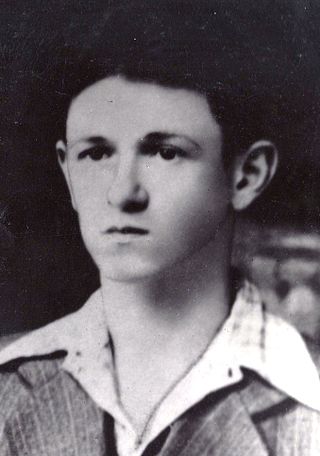 2
Liman Kaba was a Yugoslav partisan and a member of the communist resistance in Vardar Macedonia.
2
Liman Kaba was a Yugoslav partisan and a member of the communist resistance in Vardar Macedonia.
Abdyl Frashëri
 2
Abdyl Dume bey Frashëri was an Ottoman Albanian civil servant, politician during the First Constitutional Era of the Ottoman Empire, and one of the first Albanian political ideologues of the Albanian...
2
Abdyl Dume bey Frashëri was an Ottoman Albanian civil servant, politician during the First Constitutional Era of the Ottoman Empire, and one of the first Albanian political ideologues of the Albanian...
Medar Shtylla
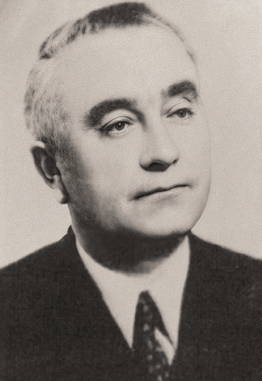 2
Medar Shtylla was an Albanian politician and one of the main organizers of the Albania Liberation Movement during World War II. He served as Minister of Health from 1946 to 1955 and later as Chairman...
2
Medar Shtylla was an Albanian politician and one of the main organizers of the Albania Liberation Movement during World War II. He served as Minister of Health from 1946 to 1955 and later as Chairman...
Skënder Luarasi
 2
Skënder Petro Luarasi was an Albanian scholar, writer and anti-fascist activist.
2
Skënder Petro Luarasi was an Albanian scholar, writer and anti-fascist activist.
Daut Boriçi
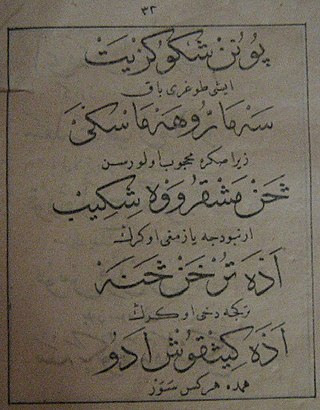 2
Mulla Daut Efendi Boriçi (Turkish: Davut Şükrü Efendi,, was an Albanian scholar, müderris and nationalist figure of the Albanian National Awakening. For most of his life he was involved in the...
2
Mulla Daut Efendi Boriçi (Turkish: Davut Şükrü Efendi,, was an Albanian scholar, müderris and nationalist figure of the Albanian National Awakening. For most of his life he was involved in the...
Franz Nopcsa von Felső-Szilvás
 2
Baron Franz Nopcsa von Felső-Szilvás was a Hungarian aristocrat, adventurer, scholar, geologist, paleontologist and albanologist. He is widely regarded as one of the founders of paleobiology, and...
2
Baron Franz Nopcsa von Felső-Szilvás was a Hungarian aristocrat, adventurer, scholar, geologist, paleontologist and albanologist. He is widely regarded as one of the founders of paleobiology, and...
Myslym Shyri
 2
Myslym Shyri ka qenë hamall, u angazhua me LANÇ-in në çetën e Pezës duke rënë më pas dëshmor. Pas vdekjes më 1969 me propozim të Byrosë Politike dhe Komitetit Qendor u vendos të nderohej me titullin...
2
Myslym Shyri ka qenë hamall, u angazhua me LANÇ-in në çetën e Pezës duke rënë më pas dëshmor. Pas vdekjes më 1969 me propozim të Byrosë Politike dhe Komitetit Qendor u vendos të nderohej me titullin...
Bilal Xhaferi
 2
Bilal Xhaferi, often referred to as Bilal Xhaferri, was an Albanian writer and political dissident against the Albanian communist regime. He is seen as the representative poet of the Albanian...
2
Bilal Xhaferi, often referred to as Bilal Xhaferri, was an Albanian writer and political dissident against the Albanian communist regime. He is seen as the representative poet of the Albanian...
Gjin Bua Shpata
 2
Gjin Bua Shpata was an Albanian ruler in Western Greece with the title of Despot. Together with Pjetër Losha, he led raids into Epirus, Acarnania and Aetolia in 1358. He was recognized as Despot by...
2
Gjin Bua Shpata was an Albanian ruler in Western Greece with the title of Despot. Together with Pjetër Losha, he led raids into Epirus, Acarnania and Aetolia in 1358. He was recognized as Despot by...
Giulio Variboba
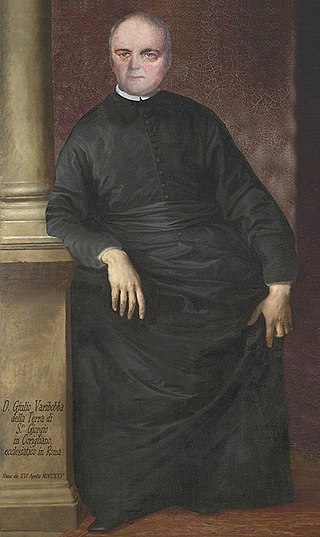 2
Giulio Variboba was an Arbëresh poet that gave an important contribution to the literature in the Albanian language.
2
Giulio Variboba was an Arbëresh poet that gave an important contribution to the literature in the Albanian language.
Jorgjia Filçe-Truja
 2
Jorgjia Filçe-Truja was an Albanian soprano. She was one of the icons of the Albanian urban lyrical music, and one of the main contributors for the establishment of the Academy of Arts of Albania.
2
Jorgjia Filçe-Truja was an Albanian soprano. She was one of the icons of the Albanian urban lyrical music, and one of the main contributors for the establishment of the Academy of Arts of Albania.
Jakov Xoxa
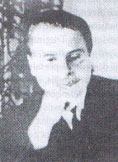 2
Jakov Xoxa was an author from Albania of the 20th century.
2
Jakov Xoxa was an author from Albania of the 20th century.
Mikel Koliqi
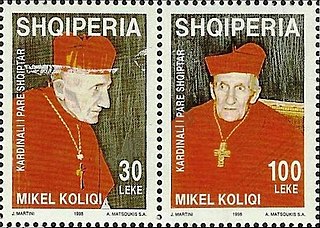 2
Mikel Koliqi was an Albanian cardinal and priest of the Roman Catholic Church. He was born and died in Shkodër (Shkodra), Albania. At the time of his death, he was the oldest member of the College of...
2
Mikel Koliqi was an Albanian cardinal and priest of the Roman Catholic Church. He was born and died in Shkodër (Shkodra), Albania. At the time of his death, he was the oldest member of the College of...
Qamil Guranjaku
 2
Qamil Guranjaku (1914-1949) ka lindur në Elbasan më 1914. Aty kreu dhe mësimet e para në shkollën e mesme. Pasi mbaroi shkollën pedagogjike për disa vjet punoi mësues (1933–1943). Që në bangat e...
2
Qamil Guranjaku (1914-1949) ka lindur në Elbasan më 1914. Aty kreu dhe mësimet e para në shkollën e mesme. Pasi mbaroi shkollën pedagogjike për disa vjet punoi mësues (1933–1943). Që në bangat e...
Pashko Vasa
 2
Pashko Vasa, known as Vaso Pasha or Wassa Pasha, was an Albanian writer, poet and publicist of the Albanian National Awakening, and Ottoman mutasarrif of Mount Lebanon Mutasarrifate from 1882 until...
2
Pashko Vasa, known as Vaso Pasha or Wassa Pasha, was an Albanian writer, poet and publicist of the Albanian National Awakening, and Ottoman mutasarrif of Mount Lebanon Mutasarrifate from 1882 until...
Luigj Gurakuqi
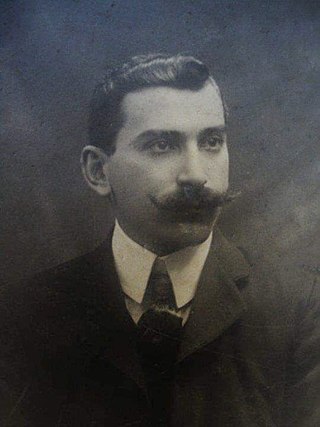 2
Luigj Gurakuqi was an Albanian writer and politician. He was an important figure of the Albanian National Awakening and was honoured with the People's Hero of Albania medal.
2
Luigj Gurakuqi was an Albanian writer and politician. He was an important figure of the Albanian National Awakening and was honoured with the People's Hero of Albania medal.
Abdi Toptani
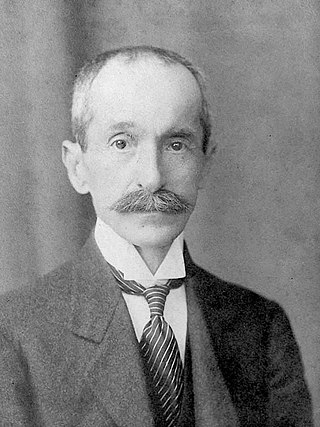 2
Abdi Toptani was a 19th-century Albanian politician. He was one of the signatories of the Albanian Declaration of Independence along with his relative Murat. He served as Minister of Finances in the...
2
Abdi Toptani was a 19th-century Albanian politician. He was one of the signatories of the Albanian Declaration of Independence along with his relative Murat. He served as Minister of Finances in the...
Vrana (military commander)
 2
Vrana, historically known as Vrana Konti was an Albanian military leader who was distinguished in the Albanian-Turkish Wars as one of the commanders of Gjergj Kastrioti Skanderbeg, of whom he was one...
2
Vrana, historically known as Vrana Konti was an Albanian military leader who was distinguished in the Albanian-Turkish Wars as one of the commanders of Gjergj Kastrioti Skanderbeg, of whom he was one...
Mustafa Lleshi
 2
Mustafa Lleshi was an Albanian anti-fascist hero of World War II.
2
Mustafa Lleshi was an Albanian anti-fascist hero of World War II.
Sali Butka
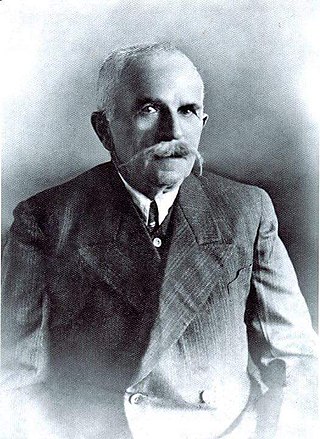 2
Sali Butka, was an Albanian nationalist figure, revolutionary kachak, poet, and one of the delegates of the city of Korçë to the Albanian National Congress of Lushnjë. He was a well-known leader of...
2
Sali Butka, was an Albanian nationalist figure, revolutionary kachak, poet, and one of the delegates of the city of Korçë to the Albanian National Congress of Lushnjë. He was a well-known leader of...
Mujo Ulqinaku
 2
Mujo Ulqinaku was an Albanian sergeant of the Royal Albanian Navy, known for his resistance on 7 April 1939 to the Italian forces during the Italian invasion of Albania. He was given the People's...
2
Mujo Ulqinaku was an Albanian sergeant of the Royal Albanian Navy, known for his resistance on 7 April 1939 to the Italian forces during the Italian invasion of Albania. He was given the People's...
Kolë Idromeno
 2
Nikoll Idromeno, better known as Kolë Idromeno, was an Albanian painter, sculptor, architect, photographer, cinematographer, composer and engineer during the Albanian Renaissance in the nineteenth...
2
Nikoll Idromeno, better known as Kolë Idromeno, was an Albanian painter, sculptor, architect, photographer, cinematographer, composer and engineer during the Albanian Renaissance in the nineteenth...
Hadji Alia
 2
Hadji Alia or Haxhi Aliu Ulqinaku (1569–1625) was an Albanian pirate lord from Ulcinj, originating from Calabria.
2
Hadji Alia or Haxhi Aliu Ulqinaku (1569–1625) was an Albanian pirate lord from Ulcinj, originating from Calabria.
Eshref Frashëri
 2
Eshref Effendy Frasheri, also referred to as Eshtref Bey Frashëri, was an Albanian politician. He served as co-Chairman of the National Council of Albania from 1921 until 1923 and Deputy Chairman...
2
Eshref Effendy Frasheri, also referred to as Eshtref Bey Frashëri, was an Albanian politician. He served as co-Chairman of the National Council of Albania from 1921 until 1923 and Deputy Chairman...
Frederik Shiroka
 2
Frederik Shiroka ka qenë mjek kirurg me kontribut të madh dhe vetëmohues. Për 30 vjetorin e vdekjes së tij, dr. Petrit Gaçe e quajti "themelues të kirurgjisë shkencore shqiptare".
2
Frederik Shiroka ka qenë mjek kirurg me kontribut të madh dhe vetëmohues. Për 30 vjetorin e vdekjes së tij, dr. Petrit Gaçe e quajti "themelues të kirurgjisë shkencore shqiptare".
Hasan Tahsini
 2
Hoxhë Hasan Tahsini or simply Hoxha Tahsim was an Albanian alim, astronomer, mathematician and philosopher. He was the first rector of Istanbul University and one of the founders of the Central...
2
Hoxhë Hasan Tahsini or simply Hoxha Tahsim was an Albanian alim, astronomer, mathematician and philosopher. He was the first rector of Istanbul University and one of the founders of the Central...
Siri Kodra
 2
Siri Kodra ka qenë veprimtar i LANÇ-it në rezistencën shqiptare gjatë Luftës së Dytë Botërore, duke rënë dëshmor i rezistencës.
2
Siri Kodra ka qenë veprimtar i LANÇ-it në rezistencën shqiptare gjatë Luftës së Dytë Botërore, duke rënë dëshmor i rezistencës.
Dervish Hekali
 2
Dervish Hekali lindi më 12 prill 1912, në fshatin Hekal të Mallakastrës.
2
Dervish Hekali lindi më 12 prill 1912, në fshatin Hekal të Mallakastrës.
Mehmed Pasha Bushati
 2
Mehmed Pasha Bushati was the governor of the Pashalik of Scutari and founder of the Bushatli dynasty of Shkodër
2
Mehmed Pasha Bushati was the governor of the Pashalik of Scutari and founder of the Bushatli dynasty of Shkodër
Petro Nini Luarasi
 2
Petro Nini Luarasi was an Albanian rilindas activist, Christian orthodox priest, teacher and journalist. His father, Nini Petro Kostallari, had also been active in the Albanian National Revival as a...
2
Petro Nini Luarasi was an Albanian rilindas activist, Christian orthodox priest, teacher and journalist. His father, Nini Petro Kostallari, had also been active in the Albanian National Revival as a...
Kadri Roshi
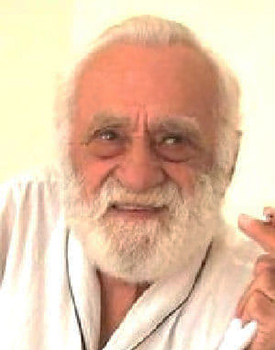 2
Kadri Roshi was an Albanian actor. He was named a People's Artist of Albania.
2
Kadri Roshi was an Albanian actor. He was named a People's Artist of Albania.
Margarita Tutulani
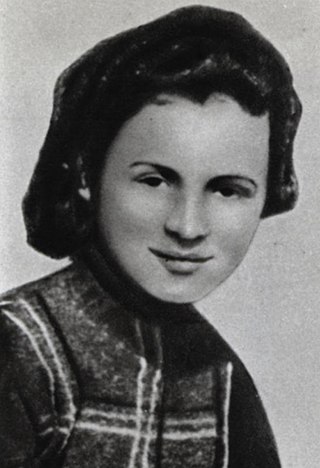 2
Margarita Tutulani was an anti-fascist activist of Albania during World War II. Her brutal death inspired many to join the resistance against fascism in Albania.
2
Margarita Tutulani was an anti-fascist activist of Albania during World War II. Her brutal death inspired many to join the resistance against fascism in Albania.
Kajo Karafili
 2
Orhan Kajo Karafili i njohur si Kajo Karafili ka qenë një i jashtëligjshëm përgjatë Mbretërisë Shqiptare, anëtar dhe atentator i Lëvizjes Nacional-Çlirimtare gjatë Luftës së Dytë Botërore. Nga...
2
Orhan Kajo Karafili i njohur si Kajo Karafili ka qenë një i jashtëligjshëm përgjatë Mbretërisë Shqiptare, anëtar dhe atentator i Lëvizjes Nacional-Çlirimtare gjatë Luftës së Dytë Botërore. Nga...
Lord Byron
 2
George Gordon Byron, 6th Baron Byron was a British poet and peer. He is one of the major figures of the Romantic movement, and is regarded as being among the greatest of English poets. Among his...
2
George Gordon Byron, 6th Baron Byron was a British poet and peer. He is one of the major figures of the Romantic movement, and is regarded as being among the greatest of English poets. Among his...
Michael Tarchaniota Marullus
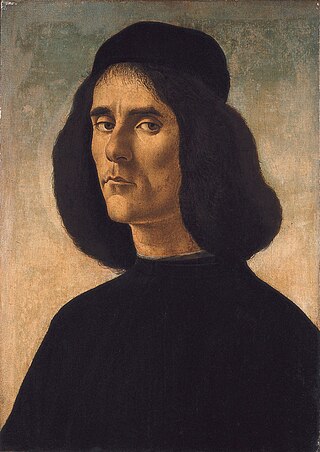 2
Michael Tarchaniota Marullus was a Greek Renaissance scholar, Neo-Latin poet, humanist and soldier.
2
Michael Tarchaniota Marullus was a Greek Renaissance scholar, Neo-Latin poet, humanist and soldier.
Alexander the Great
 2
Alexander III of Macedon, most commonly known as Alexander the Great, was a king of the ancient Greek kingdom of Macedon. He succeeded his father Philip II to the throne in 336 BC at the age of 20...
2
Alexander III of Macedon, most commonly known as Alexander the Great, was a king of the ancient Greek kingdom of Macedon. He succeeded his father Philip II to the throne in 336 BC at the age of 20...
Hiqmet Delvina
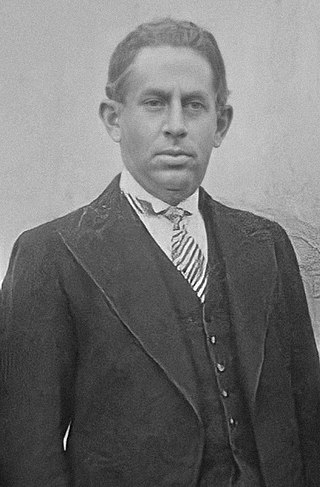 2
Hiqmet Delvina bég albán politikus, 1928-ban négy hónapig igazságügy-miniszterként Albánia kormányfője.
2
Hiqmet Delvina bég albán politikus, 1928-ban négy hónapig igazságügy-miniszterként Albánia kormányfője.
Rrapo Hekali
 2
Rrapo Hekali (?-1847) was an Albanian revolutionary born in Hekal, Mallakaster. He is famous for his role in Albanian revolt of 1847. After those events he was captured and prisoned by Ottoman...
2
Rrapo Hekali (?-1847) was an Albanian revolutionary born in Hekal, Mallakaster. He is famous for his role in Albanian revolt of 1847. After those events he was captured and prisoned by Ottoman...
Milan Šufflay
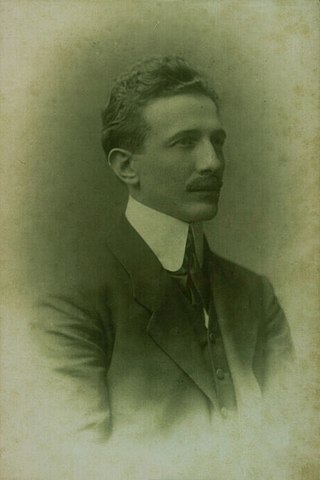 2
Milan Šufflay was a Croatian historian and politician. He was one of the founders of Albanology and the author of the first Croatian science fiction novel. As a Croatian nationalist, he was...
2
Milan Šufflay was a Croatian historian and politician. He was one of the founders of Albanology and the author of the first Croatian science fiction novel. As a Croatian nationalist, he was...
Robert Shvarc
 2
Robert Shvarc born in Sarajevo, Bosnia, was an Albanian translator, writer and poet, recognized as one of the best translators from German of the 20th century and beginning of new millennium. His...
2
Robert Shvarc born in Sarajevo, Bosnia, was an Albanian translator, writer and poet, recognized as one of the best translators from German of the 20th century and beginning of new millennium. His...
Shefqet Musaraj
 2
Shefqet Musaraj bio je albanski pisac i publicist.
2
Shefqet Musaraj bio je albanski pisac i publicist.
Xhanfise Keko
 2
Xhanfise Keko, born in Gjirokastër, Albania, was an Albanian film director.
2
Xhanfise Keko, born in Gjirokastër, Albania, was an Albanian film director.
Hasan Rıza Pasha
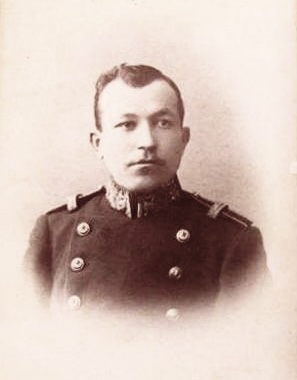 2
Hasan Rıza Pasha was a general in the Ottoman Army.
2
Hasan Rıza Pasha was a general in the Ottoman Army.
Zef Jubani
 2
Zef Jubani or Giuseppe Jubany in Italian was an Albanian folklorist and activist of the Albanian National Awakening. He is known for the publication of a Collection of Albanian Folk Songs and...
2
Zef Jubani or Giuseppe Jubany in Italian was an Albanian folklorist and activist of the Albanian National Awakening. He is known for the publication of a Collection of Albanian Folk Songs and...
Skanderbeg
 2
Gjergj Kastrioti, commonly known as Skanderbeg, was an Albanian feudal lord and military commander who led a rebellion against the Ottoman Empire in what is today Albania, North Macedonia, Greece,...
2
Gjergj Kastrioti, commonly known as Skanderbeg, was an Albanian feudal lord and military commander who led a rebellion against the Ottoman Empire in what is today Albania, North Macedonia, Greece,...
Pashk Gjeçi
 2
Pashk Gjeçi ka qenë poet, publicist, kritik, arsimtar dhe përkthyes shqiptar. U shqua për përkthimet e veprave të autorëve klasikë, si Komedinë Hyjnore të Dantes, Odisenë e Homerit, pjesën e parë të...
2
Pashk Gjeçi ka qenë poet, publicist, kritik, arsimtar dhe përkthyes shqiptar. U shqua për përkthimet e veprave të autorëve klasikë, si Komedinë Hyjnore të Dantes, Odisenë e Homerit, pjesën e parë të...
Gjon Buzuku
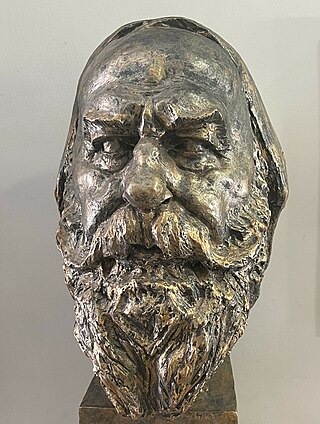 2
Gjon Buzuku was an Albanian Catholic priest and a prominent Old Albanian author, who wrote the first known printed book in Albanian. Commonly referred to as the Missal, this book is considered an...
2
Gjon Buzuku was an Albanian Catholic priest and a prominent Old Albanian author, who wrote the first known printed book in Albanian. Commonly referred to as the Missal, this book is considered an...
Inajete Dumi
 2
Inajete Dumi ka qenë veprimtare e Frontit Nacional-Çlirimtar gjatë rezistencës shqiptare. E rënë gjatë Operacionit të Dimrit, u shpall nga regjimi komunist "Heroinë e Popullit".
2
Inajete Dumi ka qenë veprimtare e Frontit Nacional-Çlirimtar gjatë rezistencës shqiptare. E rënë gjatë Operacionit të Dimrit, u shpall nga regjimi komunist "Heroinë e Popullit".
Petro Marko
 2
Petro Marko was an Albanian writer. His best-known novel is titled Hasta La Vista and recounts his experiences as a volunteer of the Republican forces during the Spanish Civil War. Petro Marko is...
2
Petro Marko was an Albanian writer. His best-known novel is titled Hasta La Vista and recounts his experiences as a volunteer of the Republican forces during the Spanish Civil War. Petro Marko is...
Allah
 2
Allah is the common Arabic word for God. In the English language, the word generally refers to God in Islam. The word is thought to be derived by contraction from al-ilāh, which means "the god", and...
2
Allah is the common Arabic word for God. In the English language, the word generally refers to God in Islam. The word is thought to be derived by contraction from al-ilāh, which means "the god", and...
Kostandin Kristoforidhi
 2
Kostandin Nelko, known as Kostandin Kristoforidhi, was an Albanian translator and scholar. He is mostly known for having translated the New Testament into Albanian for the first time in the Gheg...
2
Kostandin Nelko, known as Kostandin Kristoforidhi, was an Albanian translator and scholar. He is mostly known for having translated the New Testament into Albanian for the first time in the Gheg...
Vangjush Furxhi
 2
Vangjush Furxhi ishte aktor i famshëm shqiptar.
2
Vangjush Furxhi ishte aktor i famshëm shqiptar.
Nikollë Filja
 2
Nikollë Filja was an Arbëreshë Byzantine rite priest, and writer of the 18th century, who is known for his translations of biblical fragments into Arbëresh for children, as well as an Arbëreshë...
2
Nikollë Filja was an Arbëreshë Byzantine rite priest, and writer of the 18th century, who is known for his translations of biblical fragments into Arbëresh for children, as well as an Arbëreshë...
Shefqet Ndroqi
 2
Shefqet Ndroqi mban titullin shkencor Profesor dhe Doktor, mjek ftiziatër, kirurg, drejtues i lartë dhe organizues i sistemit shëndetsor të Sanatoriumit të Tiranës ose Spitalit Universitar të...
2
Shefqet Ndroqi mban titullin shkencor Profesor dhe Doktor, mjek ftiziatër, kirurg, drejtues i lartë dhe organizues i sistemit shëndetsor të Sanatoriumit të Tiranës ose Spitalit Universitar të...
Ramadan Zaskoci
 2
Ramadan Zaskoci nga Mamzi, i dalluar në lëvizjen antiosmane e antiserbe në vitet 1876-1914, mori pjesë në lëvizjen kundër Mehmet Ali pashë Maxharrit në Prizren e Gjakovë (1878) dhe në mbrojtjen e...
2
Ramadan Zaskoci nga Mamzi, i dalluar në lëvizjen antiosmane e antiserbe në vitet 1876-1914, mori pjesë në lëvizjen kundër Mehmet Ali pashë Maxharrit në Prizren e Gjakovë (1878) dhe në mbrojtjen e...
Hysen Çino
 2
Hysen Çino Hero i popullit.
2
Hysen Çino Hero i popullit.
Sheh Ahmet Pazari
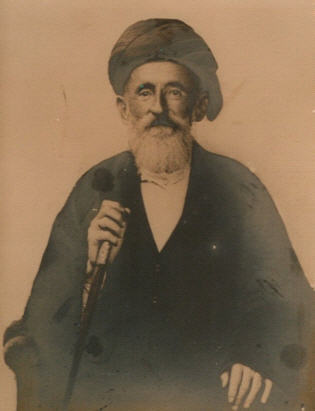 2
Ahmet Pazari ose Sheh Meta ka qenë shejh i tarikatit Halveti, si i vëllai Xhemal Ali Pazari.
2
Ahmet Pazari ose Sheh Meta ka qenë shejh i tarikatit Halveti, si i vëllai Xhemal Ali Pazari.
Vasil Shanto
 2
Vasil Shanto, called Vasko was one of the founders of the Albanian Communist Party. He was the leader, along with Qemal Stafa, of the Shkodër communist group. One of the delegates of the party, he...
2
Vasil Shanto, called Vasko was one of the founders of the Albanian Communist Party. He was the leader, along with Qemal Stafa, of the Shkodër communist group. One of the delegates of the party, he...
Stanisław Zuber
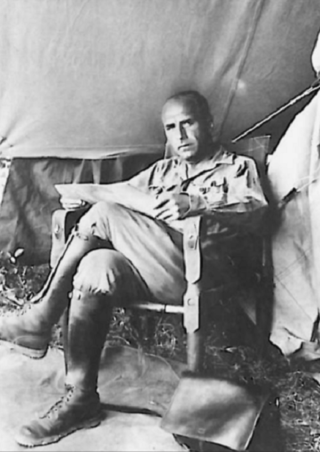 2
Stanisław Zuber was a Polish geologist, specialist in the geology of oil deposits, as well as the regional and raw geology of Albania.
2
Stanisław Zuber was a Polish geologist, specialist in the geology of oil deposits, as well as the regional and raw geology of Albania.
Nicola Chetta
 2
Nicola Chetta, was an Arbëresh writer and priest. He was born in Contessa Entellina, Sicily. He was educated at the Greek Orthodox seminary in Palermo. In 1777, Keta himself became rector of the...
2
Nicola Chetta, was an Arbëresh writer and priest. He was born in Contessa Entellina, Sicily. He was educated at the Greek Orthodox seminary in Palermo. In 1777, Keta himself became rector of the...
Marin Barleti
 2
Marin Barleti was a historian, humanist and Catholic priest from Shkodër. He is considered the first Albanian historian because of his 1504 eyewitness account of the 1478 siege of Shkodra. Barleti is...
2
Marin Barleti was a historian, humanist and Catholic priest from Shkodër. He is considered the first Albanian historian because of his 1504 eyewitness account of the 1478 siege of Shkodra. Barleti is...